News
Nigeria @ 56: New dawn of economic recession
Published
9 years agoon
By
Olu Emmanuel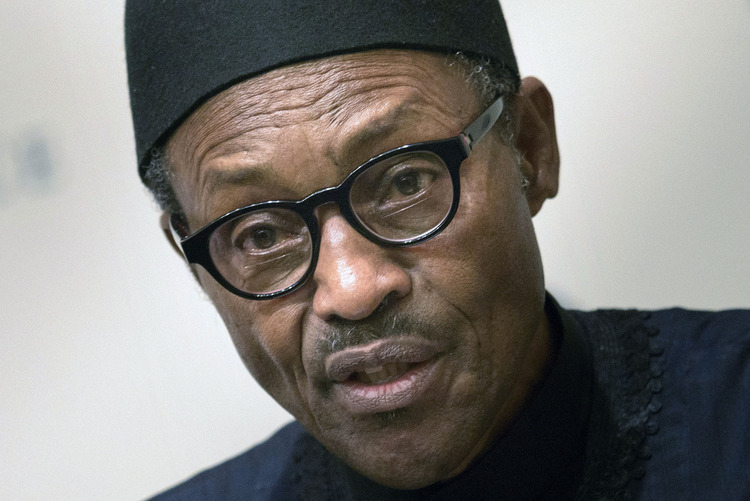
By SUNDAY ODIBASHI
October 1st has come again, the country is yet to have something to celebrate on socio-economic development. The mood before now has been that of sober reflection. That has changed. As Nigeria marks 56th Independence anniversary, the situation has deteriorated to economic recession and tormenting hardship. The economic indices reveal negative growth and rapid decline in the standard of living of the citizens.
Apparently, after over five decades of independence in 1960, Nigeria has not been able to find a way out of its locale of being in the periphery of the global political economy. The country has rather transformed into ‘chairman’ of Third World countries. Other countries like Singapore, North Korea, Malaysia, Indonesia, among others, which shared same international socio-economic status with Nigeria in the 1960s, have successfully transformed their economies from the Third World countries to Newly Industrialized s Countries (NICs) in the 20th Century international political economy.
Historically, in the 56 years existence as a sovereign state, the country has gone through diverse versions of democratic and military regimes with contradicting political behaviours and leadership culture in relation to socio-economic development.
Public policies are seldom focused on industrial production, manufacturing or wealth creation in the country’s economic transitions. Successive leaders lay more emphasis on consumption and revenue sharing and very minimal emphasis on wealth creation.
The country’s culture and value systems have been subverted by modernisation revolution mostly given impetus by globalization that heralded the 21st Century and the attendant information technology that have broken the boundaries of distinct cultures and nation-states. Today, value systems of communal lives have eroded, corruption have become writ large, integrity, pride and honesty have lost their currencies in social relations and organization of the state system.
ALSO SEE: “I believe this recession will not last”
However, 56 years after independence, Nigeria struggled to overcome the crisis of political instability during the 16 years of the democratic regime superintended by the Peoples Democratic Party (PDP) 1999 to 2105. Successful transparent and legitimate elections in the country’s political transitions were achieved to the satisfaction of virtually all stakeholders in the Nigerian project; culminating into an unprecedented victory of the opposition political party in 2015, that is 55 years after independence.
More so, the country’s economic transition made relative success in making Nigeria’s economy the fastest growing and largest economy in Africa in the 16 years of PDP government. However, there was growth without development and the production capacity of the economy remained weak.
At 56th Independence anniversary, the economy has been plunged into recession under the All Progressives Congress (APC)-controlled Federal Government. The recession is, however, a consequence of accumulated failure of leadership over the decades to which APC leaders only added their own proportion.
Contrary to popular arguments that Nigeria got political independence and not economic independence; the country got both political and economic independence on October 1, 1960. The colonialists bequeathed raw material economy to the emergent Nigerian leaders. The Nigerian economy only produces raw materials for production, processing into finished products in Europe and American economies. The emergent structure from this economic system is that Nigeria is permanently relegated to the periphery of the global economy in the international political economy. The Nigerian economy has constantly remained dependent on foreign economies.
First generation leaders in the country who include Chief Obafemi Awolowo, Alhaji Ahmadu Bello, Alhaji Abubakar Tafawa Balewa, Dr. Nnamdi Azikiwe, etc, sustained the peripheral economy with creativity and conscientiousness. This culminated into the celebrated production ground nut, cotton, in the Northern Region, Cocoa and Kola nut in the Western Region and palm produce and rubber in the Eastern Region on large scale. The economies of the regions flourished in the production of these raw materials before the discovery of crude oil and natural gas in the Niger Delta in commercial quantities which converted Nigeria to a mono-economy.
Nigeria at independence in 1960 adopted the parliamentary system of government, a process of fusion of legislative and executive powers in the legislature. Cabinet members were appointed from the legislature and the leader of the political party that controlled the majority in the parliament automatically became the head of the federal government, precisely, the Prime Minister.
Apparently, Alhaji Tafawa Balewa of the Northern Peoples Congress (NPC) which controlled majority in the federal parliament became the Prime Minister, while Dr. Nnamdi Azikiwe was made the ceremonial President. In that structure, executive powers were bestowed solely on Prime Minister Balewa. Dr. Zik was merely a ceremonial president while Balewa was the Commander-In-Chief of the Armed Forces.
The political structure was made up of three regions at independence in 1960 but when Nigeria became a Republic in 1963, the Mid West Region was created out of the Western Region. The regions had control over resource within their juridical entities but paid 50 per cent of the income to the Centre.
At 56, Nigeria has metamorphosed into 36 states structure with the federal government controlling the natural resources in the various states.
The country adopted the Presidential system of government in 1979 when Alhaji Aliyu Shagari became the first executive President on the platform of the National Party of Nigeria (NPN). Cabinet ministers were no longer appointed from the legislature and there was clear separation of powers though with inherent checks and balances between the arms of government.
At 56, economic indices show that the country is being plagued by bad managers of power or tragedy of dominant leisure elite. However, First Republic leaders 1960 to 1966 and the era of General Yakubu Gowon 1966 to 1976 were exceptions from this historic tragedy.
It is appalling that Nigeria has remained a debt and aid begging country in the international community while North Korea, Singapore, Pakistan, Malaysia, Brazil, etc. which took off on the same classification as Third World Countries in the global political economy have developed their technologies and industrial capacities for mass production, manufacturing and wealth creation which elevated them to the status of Newly Industrialised Countries (NICs) in the international political economy.
Nigeria has not been able to develop the production capacity of the domestic economy to shift out of the periphery of the global economy and has preponderantly remained an import reliance economy always in need of foreign aids either in the form of grant or loans. The economy has, accordingly, been overburdened by foreign debts; further weighed down by monumental domestic debts.
Monetary policies at all times weaken the country in foreign exchange regimes. Capacity building and purchasing power have been weakened beyond redemption in the economy. Inflation, rising employment, armed robbery, kidnapping, insurgency in the North, militancy in the Niger Delta, agitation for self-autonomy in the South East, complaints of marginalization, ethnic biases and religious intolerance, have created endemic social malady in the country. Nigeria fought a civil War which lasted 30 months between 1967 and 1970. Institutions of governance have shown notable signs of weakness.
At independence in 1960, Nigeria’s Pound exchanged at equivalent rate with the British Pound sterling; and at about 45 pence to the American dollar. When the federal government changed the currency to Naira and Kobo in 1973, the exchange rate then was N2 to one pound sterling and about 60 kobo to $1.
ALSO SEE: Atiku lashes out at Oyegun over Ondo primary
The pump price of petrol as at 1973 was 6 kobo. Today, naira exchanges at N440 to a dollar and over N600 to one pound; and the pump price of petrol has risen to N145 per litre; worsening the country’s economic woes.
Meanwhile, expectations are high on how Nigeria can get out of retrogressive development. Managing 21st century government or economy requires leadership that is rational with innovations in technology development. More importantly, the dialectics of change requires the leader to be prepared to commit class suicide in transforming the country. This has not reflected in the character of any Nigerian leader till date. Virtually, all the leaders adopt the evolutionary process.
The major challenge has been weak production capacity of the economy. Apparently, Nigeria produces what it does not consume and consumes what it does not produce. In the process, all economic advantages, comparative and substantive, are given to foreign economies that find dumping ground for industrial products in Nigeria.
The current administration is still confronted with challenges of applying appropriate stimulus to reactivate the production capacity of the economy. The monetary policies of the government, so far, and the current economic predicament, illustrates clear policy failure and the need for policy review.
Meanwhile, government’s proposal to sell national assets is seemingly a covert acceptance of the advocacy for restructuring which has pervaded the country. Sale of national assets is, however, a roadmap to bankruptcy, which may give impetus to grave intractable national tragedies.
You may like
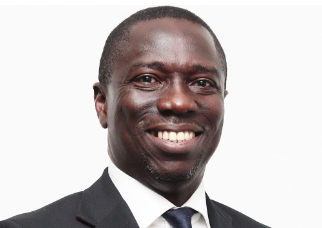

Ighodalo confident in Judiciary as He challenges Edo Governorship election results
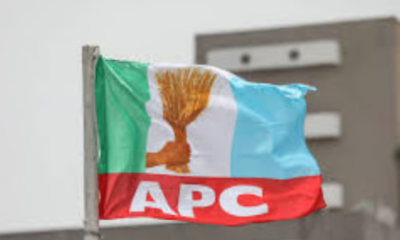

INEC Refutes APC claims of BVAS smuggling in Edo Governorship Election
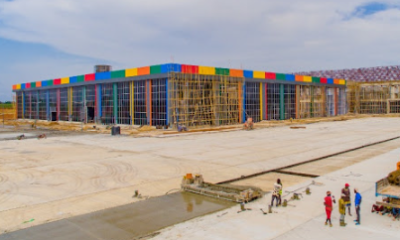

Flight operations at Ebonyi’s Chuba Okadigbo Airport set to begin in November
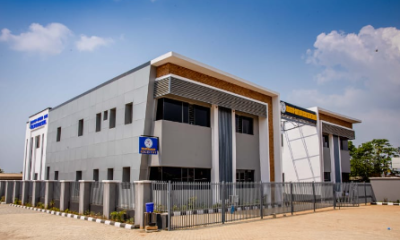

Igbogbo-Baiyeku LCDA inaugurates new legislative building
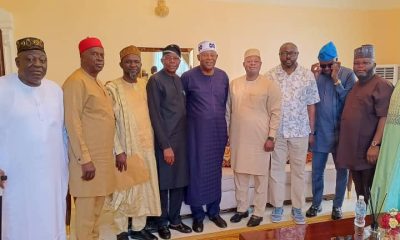

Faleke meets APC State Chairmen
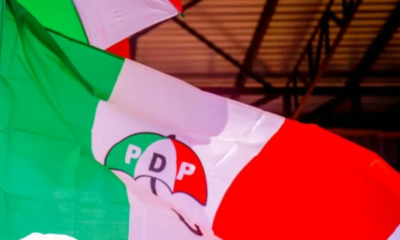

PDP slams APC over criticism of NSE visit to Osun State
Trending

 Health5 days ago
Health5 days agoDeclassified CIA memo explored concealing mind-control drugs in vaccines

 Entertainment7 days ago
Entertainment7 days agoSimi addresses resurfaced 2012 tweets amid online backlash

 Crime6 days ago
Crime6 days agoSenior police officers faces retirement after Disu’s appointment as acting IGP

 Education1 week ago
Education1 week agoPeter Obi urges JAMB to address registration challenges ahead of exams

 Health1 week ago
Health1 week agoNAFDAC issues alert on suspected revalidated SMA Gold infant formula

 Comments and Issues6 days ago
Comments and Issues6 days ago20 Critical Fixes to Save Nigeria’s Democracy from Electoral Fraud

 Football7 days ago
Football7 days agoMartínez ruled out of Everton clash with calf injury

 Latest6 days ago
Latest6 days agoICPC yet to respond to El-Rufai’s bail request as arraignment date looms

